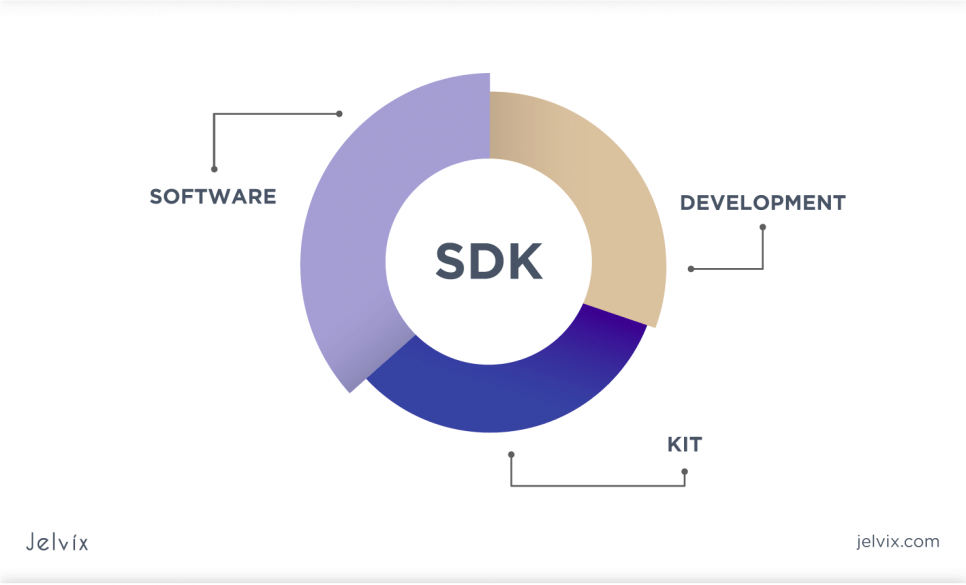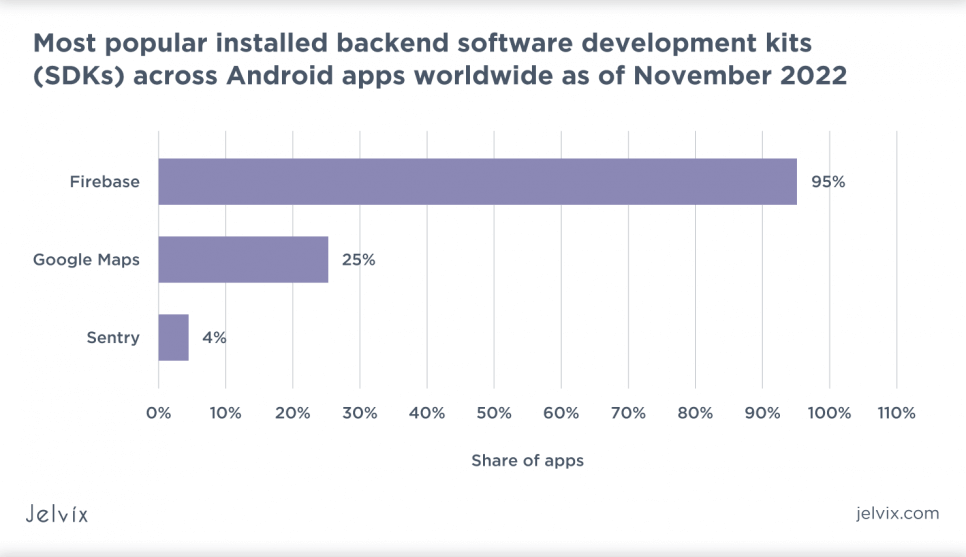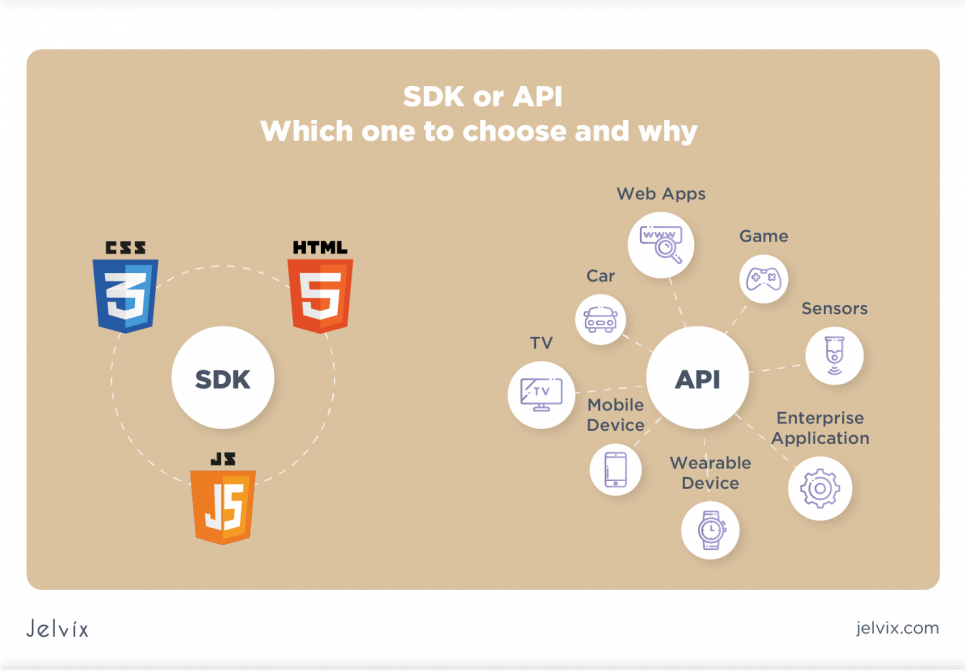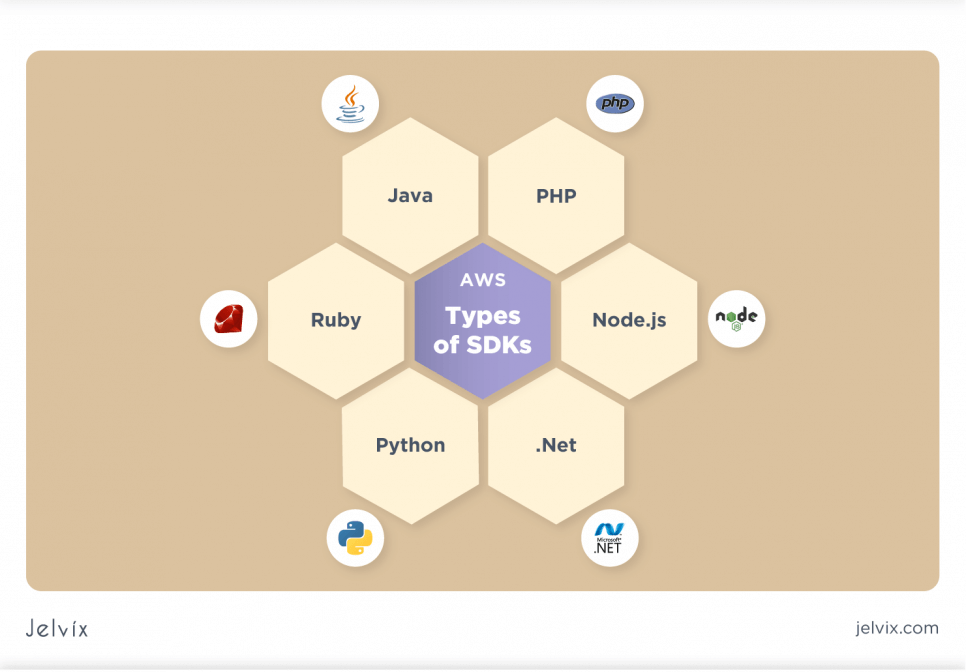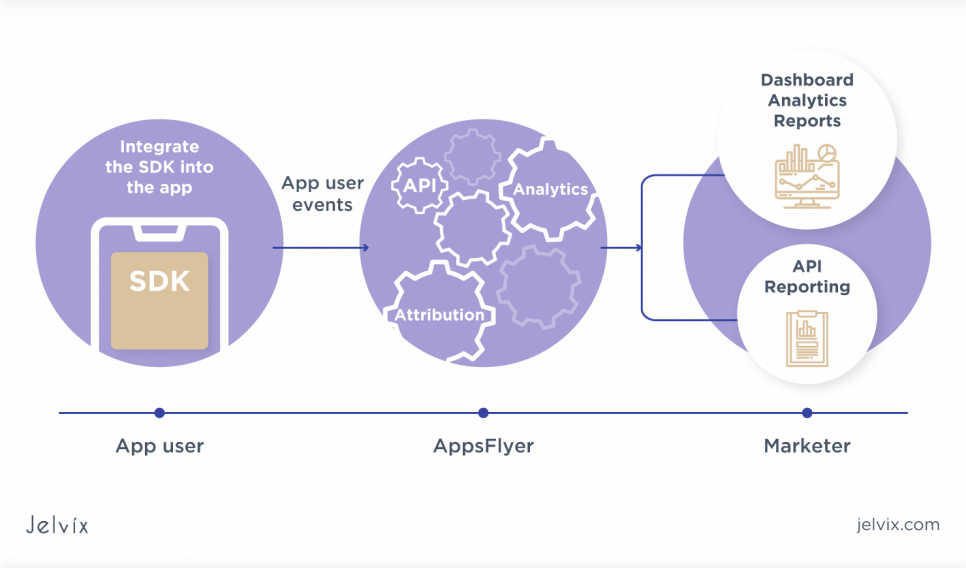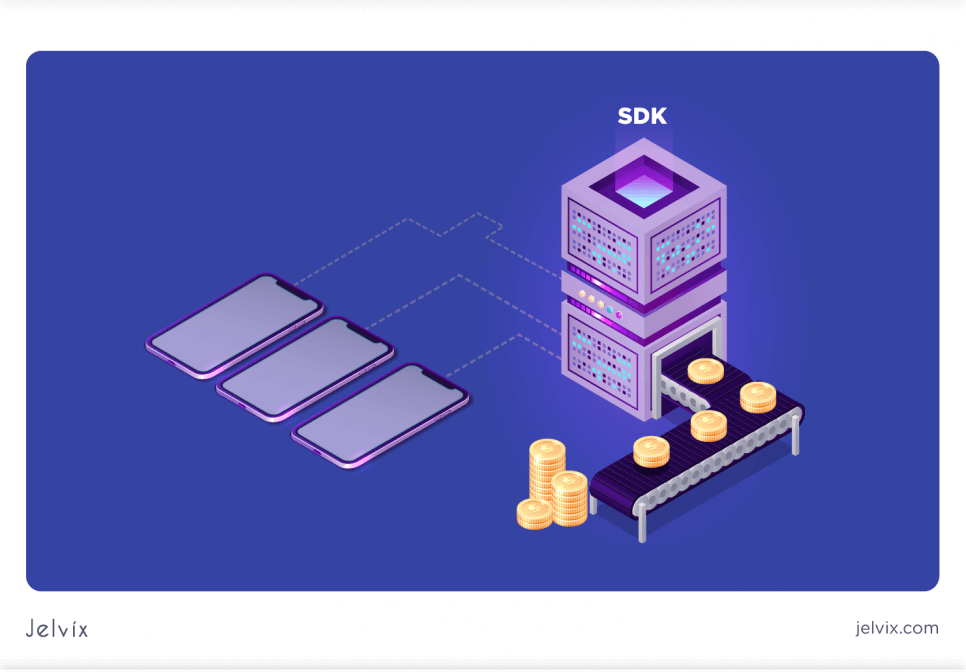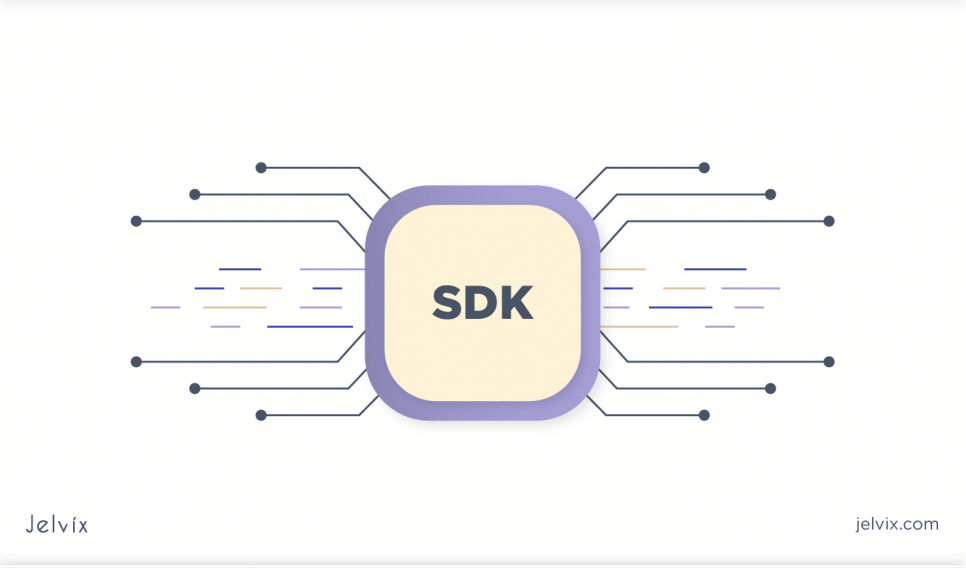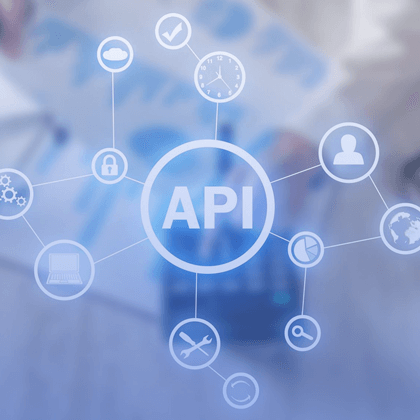Building a software solution that will stand out in today’s world takes a lot of expertise, time, and ingenuity. Developers have to undertake complex integrations for developing efficient and intuitive applications that amass a greater audience and drive higher revenues over time.
However, thankfully, nowadays, choosing an SDK makes the process a cakewalk for them. If you are in the world of mobile, you must have come across the word “SDK” bandied about in discussions on product development and customer support.
Sure, it is so much more than technical jargon; it is an acronym. To give you an overview, SDK — short for Software Development Kit — increases the app standardizations and adds new useful features in any software development process.
Moreover, it adds unique capabilities to the product that developers would not deploy without various dedicated resources. Let’s look at the terminology in detail, starting with the most obvious question:
What Exactly is an SDK?
An SDK, also known as a devkit, is a set of tools and programs utilized to build custom-made applications for any device or platform. Long story short, it is a toolbox composed of all the prerequisites developers need to develop a software platform.
Let us understand this better with a real-world analogy. If you are trying to build a bookshelf, an SDK would be everything in the box you get from IKEA, i.e., prebuilt parts, tools, and instructions on how to put it all together.
However, without an SDK, you would have to go to a forest, chop down a tree using your ax, bring the wooden pieces to your home and design the bookshelf (or any other part of the furniture) yourself. That is too much work!
A full software development kit includes everything required to set up a robust app, right from the basics such as code samples, libraries, and documentation to technology notes, processes, and guidelines. An SDK makes the lives of developers easy.
Characteristics of a Good SDK
Since an SDK is meant to be used by different companies, it has to provide value at all times. The following are the qualities of a good SDK:
- It is easy to use by other developers.
- It is lightweight and does what you need it to do — using as little code as possible.
- It comes with detailed documentation which clearly explains how the codebase works.
- It integrates well with other SDKs to deliver a seamless app experience.
- It is customizable and allows developers to tweak it to suit their unique product needs.
- It is secure and does not come with any malicious or otherwise unwanted code.
Companies offer SDKs to developers mostly for free so that they can easily integrate with their services. Moreover, some of them also create bespoke SDKs with examples and basic test projects to aid developers in starting their job quickly.
Top Examples of SDKs are:
- Google Analytics SDK for analytics and crash reporting;
- Google Sign-In SDK, Facebook SDK, and Twitter Kit for user login and authentication;
- SDKs for PayPal and Stripe for easy payment options;
- In Android, the most popular installed backend SDKs as of November 2022 included:
SDK vs. API: the Ultimate Difference
Both terms are often considered to be one; however, the distinction is evident and straightforward in application development.
While APIs are the pieces of the codebase that communicate with the parts of the software, an SDK facilitates the creation of an application by having a debugger, a compiler, and perhaps a software framework.
That means, if you are developing a ride-sharing mobile app, you need to insert APIs that connect the app to a user’s phone and messaging capabilities, GPS, and payment platform. Otherwise, the app would not work as intended.
Although these elements have different backends, an API lets them all communicate to deliver a seamless user experience. Contrary to popular belief, you can use an API without an SDK. That is because SDKs often go a step further and include additional documentation, libraries and code samples. The arrangement reduces the learning curve for developers who want to deploy a third-party feature in their software.
Moreover, SDKs are much more cost-friendly and help companies save substantially with a shorter development cycle. SDKs are also tested rigorously and verified by different users for their reliability and stability before their market launch.
Different Types of SDKs in the Market
There are different types of SDKs built to help developers in different areas. Some of them are used to optimize an app for a specific device or OS, while some others allow developers to insert various tools and beef up the application.
Let us take a closer look at different types of SDKs:
1. SDKs for Hardware
Since IoT devices have grown exponentially in the past few years, companies are releasing SDKs that assist developers in programming them or add extra functionalities to IoT. For instance, if you purchase solar panels, the hardware provider might also include an SDK to program the app at your convenience.
2. Open-Source SDKs
The open-source SDKs invite developers to modify them for better results for free. Indeed, a developer gets the flexibility to customize such a kit as desired, but this free reign could introduce a few security risks in the application.
However, open-source SDKs are still very popular and are majorly used for mobile app development. For instance, building an Android app on Java requires a Java Development Kit. The same goes for iOS applications; they come with specific SDKs of their own.
3. Proprietary SDKs
Proprietary or commercial SDKs are the exact opposite of open-source SDKs. A developer requires a license to use the kit. However, despite the permission, it is not possible to implement changes to the source code.
In fact, projects using proprietary SDKs must always be built in a way that enables users to access, view and modify the open-source component of the application at all times.
4. Platform SDKs
Platform SDKs are the essential components that are mandatory to develop applications for a specific platform. Therefore, it is composed of only the necessary items and does not include any add-on functionalities to tamper with.
For instance, designing an application that works on both Apple and Android devices requires an SDK for each. You can also include kits for web app programming languages such as Ruby, PHP, Python, and so on as in the case of AWS as shown below:
5. Extension SDKs
Extension SDKs contain a set of optional (or additional) components that efficiently extend the platform’s functionality. However, they are not mandatory for developing all apps as they are not responsible for fulfilling the basic requirements of the process.
Elements an SDK Contains
The contents of an SDK varies from one kit to another. Different SDKs are developed on the basis of the diverse needs of developers, and the tools are distributed via an Integrated Development Environment [IDE] that comes within the SDK.
Typically, SDKs are composed of at least one API. They could contain more — depending on the kit and the development requirements. However, all SDKs include a few of the following essential ingredients:
1. Code Library
This library comprises a set of raw codes that the developers can plug in directly and enable the application or software to function as desired. For instance, Keras, a Python-based library, facilitates the creation of ML neural networks. On the other hand, the Pillow library can be used for creating bitmap images in the app.
2. Sample of Codes
As the name suggests, code samples help developers to get started on the job by showing how a specific code can be used for a particular task on a specific platform for a particular device. A sample code is a complete web application or page comprising references to all required source files in the description!
3. Application Programming Interfaces [APIs]
These are the codebase parts that make communication possible between two different pieces of the software possible. In a nutshell, APIs help applications to connect with the services efficiently.
APIs are lightweight and are helpful only when you need to leverage more specific functions of an SDK. Otherwise, one can also carry out development without them.
4. Tutorials and Documentation
To provide 360-degree assistance to the developers, many SDKs include instructions describing how they should use the application code. Detailed documentation is an essential factor for building a good SDK. That is how developers can advance the development process without spending too much time learning the code.
5. Additional Tools
The aim of an SDK is to simplify the job of a developer. Although they vary a lot as per different industry niches but are extremely incredibly beneficial to developers in performing various tasks around creating, running, and testing applications.
Read more about the most common software development strategies and take a look at their benefits and drawbacks.
Seven Reasons Why Developers Need an SDK
The benefits of SDKs for a developer are enormous as they make the deployment and integration of the application more efficient and quick. This results in improving the app retention rate and the average time spent on the app by the end-users — desired by any company with an app.
Developers can create software solutions or applications that will work correctly on a specific platform or service. The following are seven solid reasons that make SDKs an integral part of the development process:
1. Building Customized Experience
Equipped with the right set of functionalities, SDKs can enhance the app’s intuitiveness and user experience without having the developers break a sweat or burning a hole in the company’s pocket that wants to launch an app.
They help define the purpose behind developing the app and enable the developers to design the product accordingly. When an application is developed strategically and dynamically, it will help the company capture more installs and boost app user retention rates through digital adoption platforms.
2. Faster and Smoother Integration
SDKs come with prebuilt functionalities that make the integration process more comfortable than ever before. It eliminates the traditional yet time-taking process of creating authorization signatures in the native language or platform and considerably reduces integration complexity.
Also, developers do not need the expertise to work on SDKs as they are equipped with the programming tools, documentation, and sample codes. An SDK helps developers gain information promptly when the development process requires them to integrate with an existing tech stack.
3. Lesser Time to Market
An average Android app uses 18.3 third-party SDKs (higher if it is a game). No developer has the time to code every single tool from scratch. Moreover, that makes the app development process extremely time-consuming and expensive for the company.
A good SDK properly integrates structured codes and a wide range of materials that minimize the sales cycle. Moreover, developers are liberated to release their apps faster as the time and money spent working on complex infrastructures or processes get saved.
In short, SDKs are an all-in-one solution that does not require integration with other components, further slowing down the development process.
4. Application Accessibility
Accessibility is an essential factor to consider while developing any application or software. Research shows 15% of the world’s population lives with some form of disability or another.
Therefore, whether you are building a platform from scratch or merely upgrading an existing one, you have to consider the accessibility of your app’s components to users with disabilities.
For example, if yours is a cooking app, users should be able to use voice commands instead of touch gestures to navigate through the app.
Many SDKs enable developers to integrate accessibility features and services for improving application usability — thus reaching a broader audience in the market.
5. Cost Savings
The amount of money spent on developing an efficient app or software is an essential factor to consider as companies — irrespective of their size — set aside the budget for the project. SDKs can help in this area as well.
Since they shorten the development cycle and develop essential elements such as fully-realized coding and integrated SDKs, companies save a considerable chunk of money that can be utilized in other business areas.
6. Increased Brand Exposure
If your application is valuable and its accompanying SDK allows significant interoperability, you can increase the chances of other tools integrating with your product. This not only boosts your brand’s exposure in the market and enables developers worldwide to share technologies at a larger scale — thus increasing the value of your application manifold.
7. Mitigate Risks
Working with SDKs will ensure you have better control over some of the significant factors, such as your application’s user interface and security. The thing is, establishing robust security systems can be problematic at times and requires experts to develop, test, and update.
However, SDKs make it possible to block fraud and keep the critical app functions safe from being tampered with, thus offering a hassle-free user experience. Besides, SDK offers efficient browser services that let you provide improved benefits.
Licenses Required to Use an SDK
Many SDKs come with a set of rules and agreements that differ as per the companies releasing them. Developers must abide by those rules, and a declaration must be submitted or acknowledged before use.
Agreements are done to legally bind the contract between the user and the company regarding SDK use. Before agreeing and using any SDK, developers must consider various factors and check whether they meet their demand.
The following are a few examples of the necessary policies that should be considered before making a decision:
- Before agreeing on behalf of the company, one should have the full legal authority to bind them to the license agreement.
- An SDK with a proprietary license cannot be used for the development of open-source software. That can result in penalties and other decisive legal actions.
- Similarly, SDKs with a General Public License (open-source) is not an appropriate solution for developing proprietary apps.
- The companies collect primary data of the users to examine and improve SDKs.
Wrapping it Up
SDKs help developers deliver efficient and error-free applications in an era where customization and high performance hold the key to success.
Irrespective of the type of app or the industry niche you wish to cater to, SDKs and APIs act as vital services that simplify the development process and save time and money.
They are constructed to help developers with the expertise and solutions needed to get the job done quickly and easily. SDK empowers them with the best practices without going through the hectic research process themselves.
Moreover, adding new enhancements is also simplified as companies owning the SDKs have to update them and share them with those using the SDK.
In the end, an SDK allows you to open your application to new opportunities and a broader target market as it can be integrated with other third-party tools in the industry.
Hazel Raoult is a freelance marketing writer and works with PRmention. She has 6+ years of experience in writing about business, entrepreneurship, marketing, and all things SaaS. Hazel loves to split her time between writing, editing, and hanging out with her family.
Need a qualified team of developers?
Own the dedicated development team of professionals exclusively for your project.

